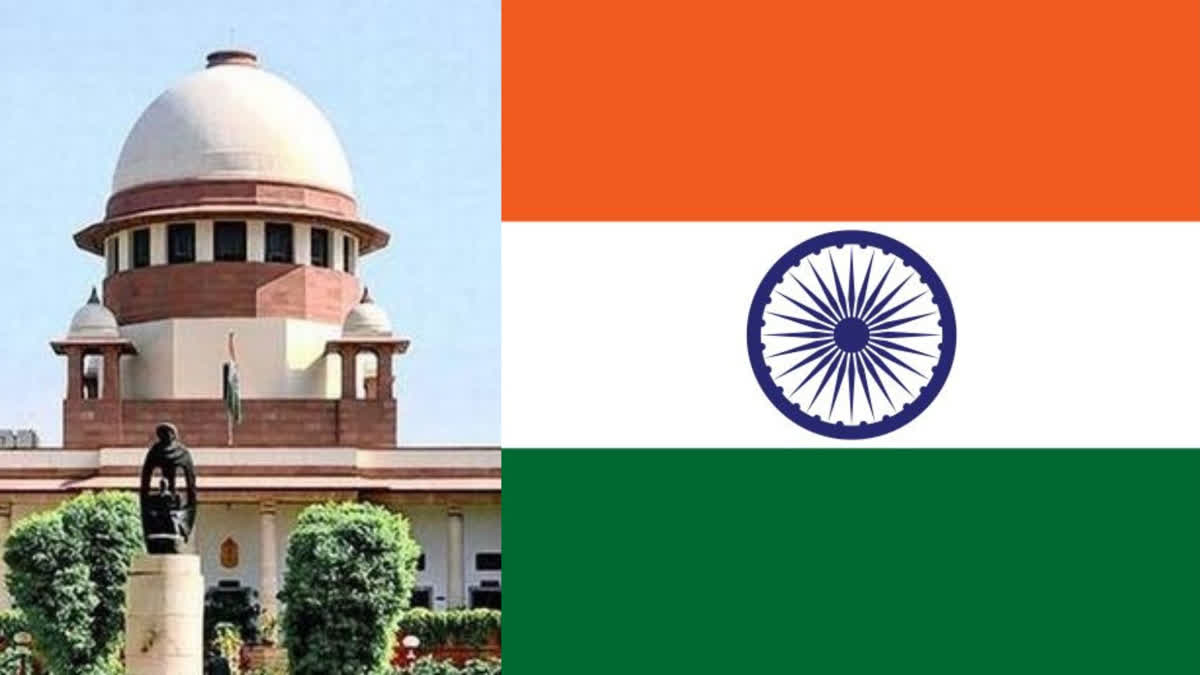New Delhi : The Centre has told the Supreme Court that illegal Rohingya Muslim migrants have no fundamental right to reside and settle in India.
The Centre said its stance concerning illegal Rohingya migrants is based on tangible factors and there exists an intelligible differentia between citizens and foreigners; and foreigners and illegal migrants. “It is to be further noted that the case of illegal migration of Rohingyas is different from that of human trafficking. Rohingyas have fled Myanmar on their own and illegally entered into India knowing well that they were illegally entering into India”, said the MHA’s affidavit.
The Centre, citing many apex court judgments, said a foreigner only enjoys right to life and liberty under Article 21 of the Constitution and does not have the right to reside and settle in the country, which is available to Indian citizens. The Centre said that it has credible information that a large number of Rohingyas are indulging in activities of obtaining fabricated Indian identity documents, human trafficking, and subversive activities in different parts of the country. The MHA stressed that this poses a serious internal and national security threat.
The Centre, referring to the prayers made in the petition filed by Priyali Sur, said the prayers seeking to provide illegal Rohingyas migrants with the right to reside within the territory of India, which is expressly against Article 19, which is limited in its application only to citizens and cannot be extended to apply to foreigners.
The Centre stressed that the judiciary cannot enter the policy domains of Parliament and the executive to create a separate category for grant of refugee status to those who are entering illegally in the country. “It is submitted that issues raised by petitioner have wide ranging ramifications and clearly fall within the legislative policy of Parliament and the contours of judicial review would be suitably altered in such regard. It is submitted that his court has consistently held that legislative choice over one option or the other cannot be questioned in courts over its efficacy or otherwise”, said the affidavit.
The Centre said the prayer of the petitioner which seeks a suspension of the application of the Foreigners Act to the Rohingya community is wholly unsustainable. “It is submitted that the petitioner has based the claim on the argument that the application of the law under the Foreigners Act, 1946 and other allied Acts amount to breach of rights under Article 14 and Article 21. Without prejudice to the fact that the respondent question the application of any fundamental rights to illegal migrants, the application of statutory law, which has been upheld by this court, cannot amount to breach of fundamental right”, said the affidavit.
The MHA said the robust scheme of rights available to Indian citizens under Article 14 and Article 21, cannot be extended in toto to foreigners and especially to illegal migrants. It added that India does not recognize UNHCR refugee cards, which some Rohingya Muslims have secured to use as the basis to claim refugee status.
The affidavit said the country is already facing large-scale illegal migration from a neighbouring country which has altered the demographic profile of some border states. It added that continuance of Rohingyas’ illegal migration to India and their stay in India, apart from it being absolutely illegal, is fraught with serious security ramifications.
The Centre said India, not being a signatory to 1951 Refugee Convention and to the Protocol relating to Status of Refugees, would deal with Rohingyas as per its own domestic framework.
The petitioner sought treating Rohingyas akin to refugees from Tibet and Sri Lanka. The Centre said whether or not any class of persons are to be recognised as refugees is a pure policy decision, and there cannot be any recognition of refugee status outside the legislative framework and such a declaration of refugee status cannot be made by judicial order.
Read More



